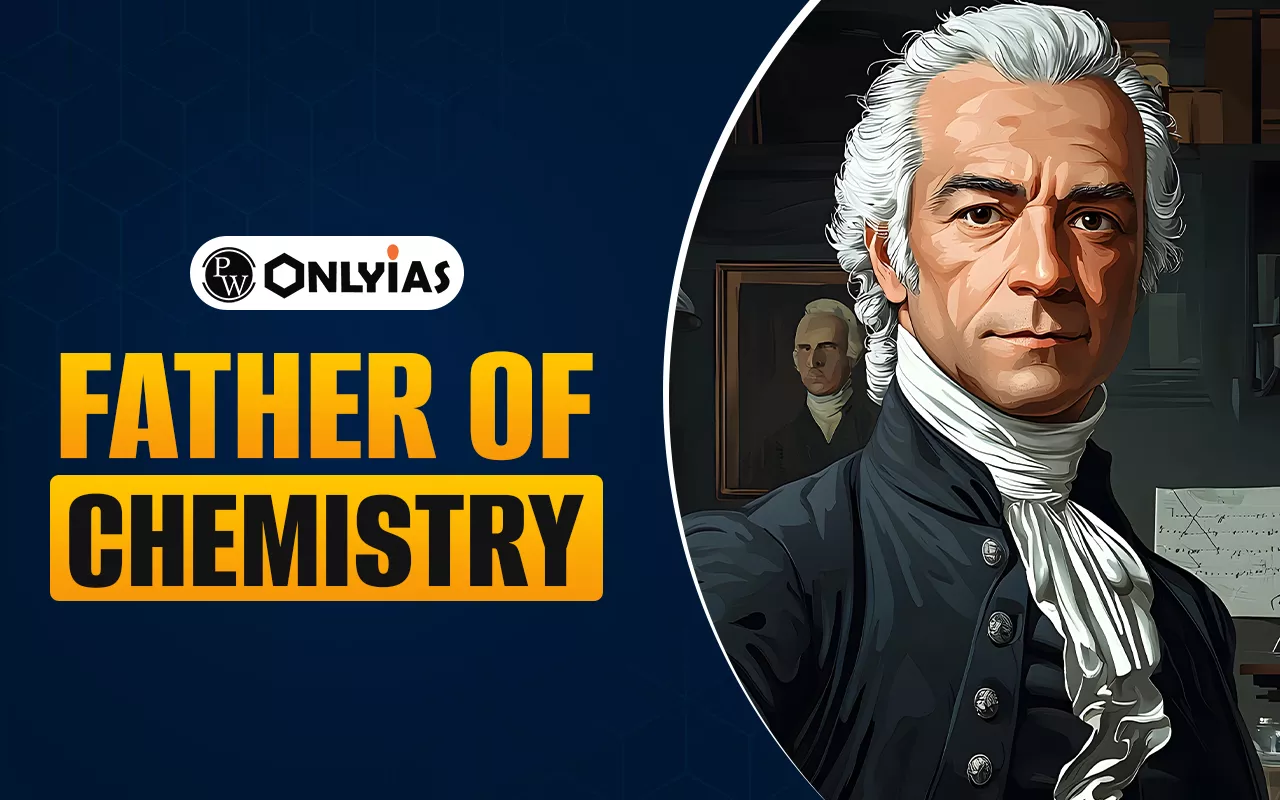Antoine Lavoisier, known as the Father of Chemistry, revolutionized science by defining elements, discovering oxygen’s role, and establishing the Law of Conservation of Mass. In India, Prafulla Chandra Ray is regarded as the Father of Chemistry in India for his discovery of Mercurous Nitrite and founding Bengal Chemicals, the nation’s first pharmaceutical company.

Father of Chemistry is Antoine Lavoisier, a French scientist whose work revolutionized the study of matter and chemical reactions. He introduced a systematic approach to experiments, named and classified chemical substances, and helped establish the law of conservation of mass.
Lavoisier’s discoveries changed chemistry from a mystical art into a true science, making him one of the most influential figures in scientific history.
Antoine Lavoisier is widely regarded as the Father of Modern Chemistry. Born in 1743 in France, Lavoisier introduced a new level of accuracy and organization to chemical research. He defined elements, named key gases like oxygen and hydrogen, and established the Law of Conservation of Mass proving that matter is neither created nor destroyed in a chemical reaction.
Before Lavoisier’s time, people believed in the phlogiston theory, which wrongly explained combustion. Through his precise experiments, Lavoisier disproved that theory and demonstrated that oxygen plays a vital role in burning and respiration. His groundbreaking textbook, Traité Élémentaire de Chimie (Elementary Treatise of Chemistry), published in 1789, is considered the first modern chemistry textbook.
Antoine Lavoisier played a crucial role in shaping modern chemical science. His discoveries and systematic methods brought accuracy, organization, and logic to the study of chemistry. Below are his most important contributions:
Just as Lavoisier shaped global chemistry, Prafulla Chandra Ray is known as the father of chemistry in India. He was a respected Bengali chemist and educator who made a significant impact on science and industry in the country.
Check Out UPSC CSE Books
Visit PW Store
Dr. Prafulla Chandra Ray, known as the Father of Chemistry in India, made remarkable contributions to science, education, and industry. His pioneering work laid the foundation for the growth of chemical research and industry in India.
Ready to boost your UPSC 2026 preparation? Join PW’s UPSC online courses today!
Antoine Lavoisier is regarded as the Father of Modern Chemistry. His introduction of quantitative methods and the establishment of the Law of Conservation of Mass were major turning points in the science.
Lavoisier is called the father of chemistry in world because he transformed chemistry from a field based mostly on observation to a precise science based on measurement and experiment. His work created the foundation for the chemical science we study today.
Prafulla Chandra Ray is known as the father of chemistry in India and for founding the first pharmaceutical company in India, Bengal Chemicals & Pharmaceutical Works. He is also noted for his discovery of Mercurous Nitrite.
The Law of Conservation of Mass states that during a chemical reaction, the total mass of the products is always exactly equal to the total mass of the reactants. No mass is created or destroyed.
<div class="new-fform">
</div>
